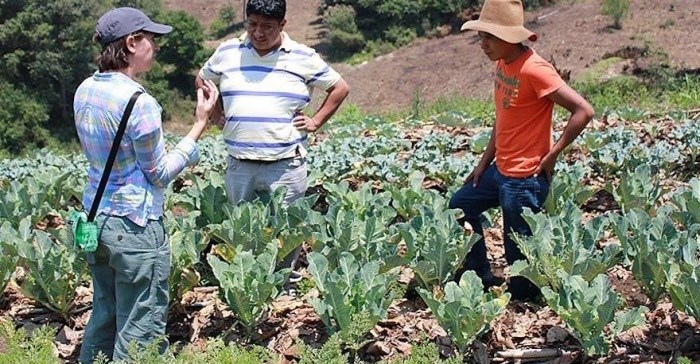With the help of
UC Davis, a research university based in the United States, farmers in Guatemala are using a simple, yet effective, system to battle climate change. Called MásRiego, which translates to "more irrigation", the project will help farmers, particularly women and youth, grow high-value crops on very small plots of land.
The new project is part of the US government’s Feed the Future initiative. The UC Davis-led Horticulture Innovation Lab has the potential to connect 9,000 rural households in Guatemala with improved water management and climate-smart agriculture strategies, to increase food security and reduce poverty.
“The opportunity to impact so many farmers’ lives on this scale is exciting,” said Beth Mitcham, director of the Horticulture Innovation Lab. “We’re taking lessons learned from our previous research — in Guatemala, Honduras and Cambodia — and building a team to help more small-scale farmers apply our findings and successfully use these innovative practices.”
At the core of the project is drip irrigation. With inconsistent rainfall in Guatemala and the negative effects of climate change, competition for resources in the area is at an all time high. To mitigate these factors, farmers need to work smart to conserve water and use what they have effectively.
According to Take Part, the irrigation system is essentially a series of hoses punctured at various points. It is designed to pinpoint and apply water precisely where it’s needed for a crop to grow best. Using this method, 90 per cent of the water used is directed at the plants.
Other holistic systems used by the project include rainwater harvesting, reduced tillage, mulch use and diverse crop rotation.
To enable farmers to adopt these new practices, the team will not only provide training but also build partnerships to increase farmers’ access to much-needed microcredit financing and irrigation equipment.




































